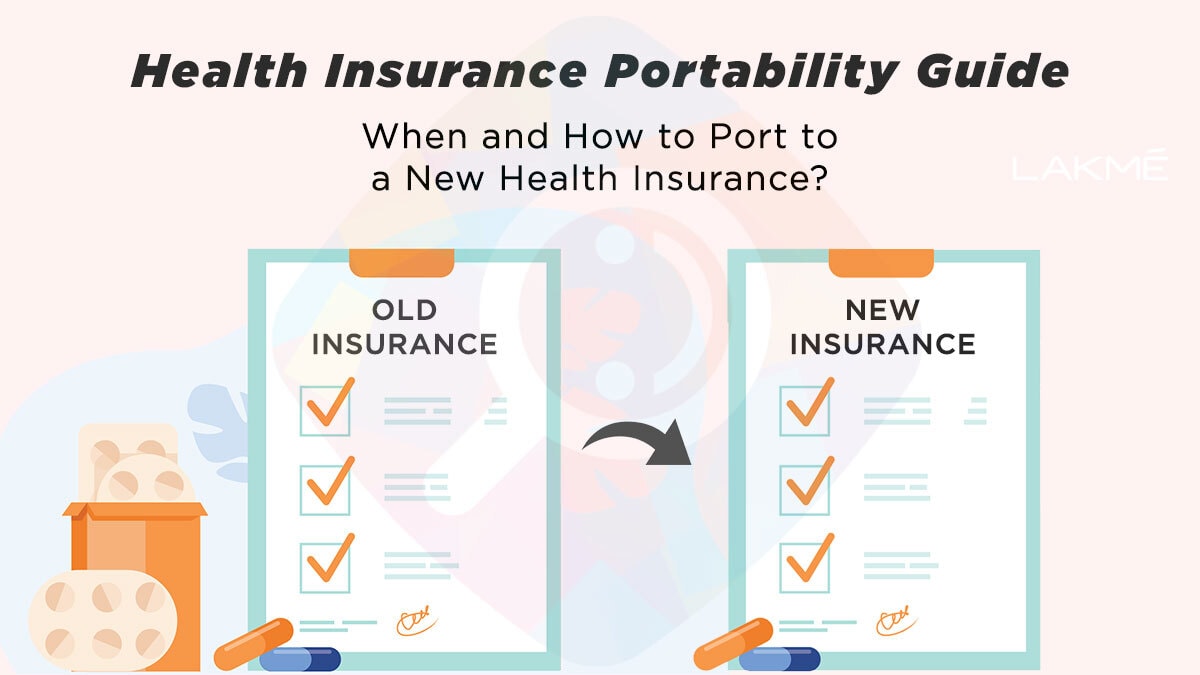Are you unsatisfied with your current health insurance policy due to reasons like high premium, less returns, poor service, etc? You can opt-in for a health insurance portability scheme which is easy, transparent, and beneficial. Well, we will have a look on When and How to Port to a New Health Insurance and many more related insights.

What is Health Insurance Portability?
Health Insurance Portability means migrating to a New Health Insurance Company or switching to your existing insurance company's different health insurance plan. The policyholder can enjoy this portability without losing his/her credits or benefits accumulated in the current health insurance policy.
Portability is accessible for all Individual Indemnity Health Insurance Policies issued by Non-life General Insurance companies and Standalone Health insurance Companies. Any Individual Health insurance policyholder can port his current policy at the expiry of the policy year and choose:
- to Individual Health Insurance Plan or Family Floater Policy
- to a Group Health Insurance Policy, subject to underwriting norms applicable to such Group health insurance plans.
Now, the policyholder can choose to port existing health insurance and determine your favourite insurance company. If the policyholder does not wish to change the existing insurance company, the policyholder may migrate to any other plan offered by his existing health insurance company.
IRDA has issued detailed guidelines vide circular no. IRDAI/HLT/REG/CIR/003/01/2020 dated 01.01.2020 to safeguard policyholders in the event of Health Insurance Portability. Health Insurance Portability is applicable for all individual plans, combining Family floater policies and group health insurance policies.
Related Read: Health Insurance Buying Guide : Common mistakes an insured makes while Buying Best Health Insurance Policy
Benefits of Health Insurance Policy Portability
In Health insurance portability, a policyholder will not suffer his gains such as Coverage of Pre-existing Diseases, Time-bound waiting period of excluded diseases, sum assured, cumulative bonus, covered perils.
Pre-existing Diseases: The policyholder has to complete specified years in the existing policy in order to include pre-existing diseases. This benefit will transfer under Probability, and a new insurance company or plan will continue to cover pre-existing diseases. If there is an outstanding unexpired period to cover your pre-existing diseases, the policyholder can complete the unexpired period under the new policy to cover pre-existing diseases. Policyholders don't need to restart this limitation period upon migration.
Waiting Period: Like the pre-existing diseases, the policy does not cover certain diseases from inception. These diseases are part of excluded perils for a pre-specified waiting period, and once the waiting period is over, excluded diseases are automatically covered. Portability will transfer this benefit into a new policy.
Cumulative Bonus: The sum assured, along with cumulative bonus if any, will be available for portability when the policyholder migrates to an alternative plan or a new insurance company.
Individual or Floater plan: The policyholder can choose to switch from floater plan to individual plan or individual plan to Group Health insurance plan.
When can you apply for Health Insurance Portability?
A policyholder can apply for migration/porting at the moment of renewal. No mid-term migration is allowed. It is prudent to wait for the whole policy tenure for portability. If you require any supplement in the policy during the policy period, it is not permissible. The only option accessible is to buy an add-on policy.
How to apply for Health Insurance Portability?
If a policyholder aspires to migrate his existing health insurance policy, he can apply to his current insurance company at least 30 days before the premium renewal date. An insurance company can grant the migration in less than 30 days in extraordinary circumstances. The insurance company cannot demand any fee for policy migration.
Can New insurance companies deny or restrict benefits to the migrating policyholder?
Once a policyholder ported the policy and applied for the new policy. Such new Health insurer:
- cannot deny any privilege accumulated including sum assured and cumulative bonus for migration to and from Individual or Family floater policy, requiring that the policyholder need to complete four continuous break free years in his existing policy.
- can limit the benefits for policyholders migrating from a Group Health Insurance Policy and porting to Individual Policy or Family Floater policy, subject to the terms and conditions of the new policy.
If there are any restrictions on the new insurance policy, the new insurance company must inform the policyholder within 15 days regarding such conditions.
Health insurance portability is policyholder friendly step by IRDA
A policyholder is the fullest achiever in Health insurance portability. Earlier, the policyholder could not switch to a new insurance company because of the fear of losing accrued benefits and a cumulative bonus. In portability, IRDA removes this feal. Now Health insurance benefits are not attached to the insurance company. Policyholders can decide upon the Insurance Provider best suitable for their needs and wants. There is no surety of customer retention for insurance companies at renewal, so it binds health insurance companies to offer better services to attract larger customers. It is a win-win situation for all.








 Follow Us
Follow Us








@FighterMan Does new company clearly mention in policy docs date of inception of benefits?
What if new company not accept old company’s SI+NCB
Most importantly isn’t the new company at loss because without even getting premium for so many years (for which I was member in old policy) they have to provide all benefits to me? Won’t they cause troubles to this customer?
Also i think new company will definitely ask for medical checkup and then apply loading saying X ped detected. In such cases they can reject port request+charge us for tests